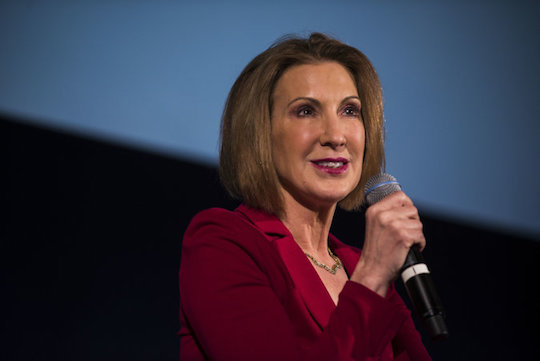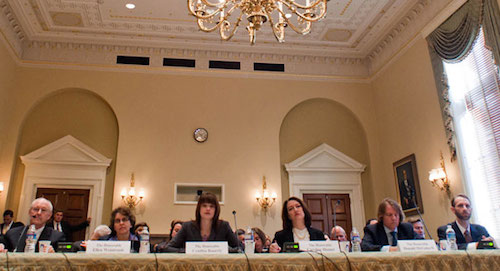According to the precedents set by Citizens United v. FEC, so-called super PACs can raise and spend unlimited amounts of money in support of presidential candidates, so long as they remain independent from their campaigns. The key word in the Supreme Court’s decision has become “coordination”: the super PAC cannot work with campaign organizers to direct how its money and volunteer hours are spent. In practice, “coordination” has become impossible to prove—partly because super PACs and candidates cynically twist the spirit of the law, and partly because the Federal Elections Commission has lost its ability to enforce its own rules. That’s why the super PAC Carly For America—which received a letter from the FEC saying its name could not include a candidate’s name—changed to CARLY. Problem solved.
Tag Archives: FEC
FEC chief says agency can’t curb abuse
In an interview with the New York Times, FEC chairwoman Ann Ravel said that her agency would not be able to control campaign abuses in 2016. Quote:
“The likelihood of the laws being enforced is slim. I never want to give up, but I’m not under any illusions. People think the FEC is dysfunctional. It’s worse than dysfunctional.”
There are six FEC commissioners—three Republicans and three Democrats. The Times describes this people as “perpetually locked in 3 to 3 ties” along party lines, probably due to fundamental disagreements over the agency’s proper function. Democratic members believe it should investigate campaign finance abuses. Republicans believe it should, um, not. “Congress set this place up to gridlock,” said Republican commissioner Lee Goodman. “This agency is functioning as Congress intended. The democracy isn’t collapsing around us.”
FEC deadlocks neutralize campaign finance law
Earlier this year, the Federal Election Commission did not rule that candidates who provide B-roll footage to super PACs are are violating the prohibition against coordination set down in Citizens United v. FEC. The commission didn’t rule that such behavior is okay, either. It simply deadlocked, with three Democratic commissioners determining that exchanging footage constituted coordination, and three Republican commissioners determining that it didn’t. The tie meant that the FEC didn’t do anything and therefore operatively approved—something that’s been happening a a lot lately, according to the New York Times.
DC circuit court in process of deciding net neutrality
Back in 2010, Congress passed the the Open Internet Order, which authorizes the FCC to prevent internet service providers from blocking particular applications—such as file sharing or telephony—and from charging content providers to make their sites load faster than others. This broad set of rules is called net neutrality, and Verizon hates it. On Monday, lawyers for Verizon and the FCC delivered oral arguments before the US Court of Appeals for the District of Columbia Circuit in an attempt to overturn/protect the Open Internet Order, respectively. You can read a broad summary of their positions here. Probably you should read it now, because by the end of the week Ars Technica could load really slowly as your ISP encourages you to get your news from Yahoo.




